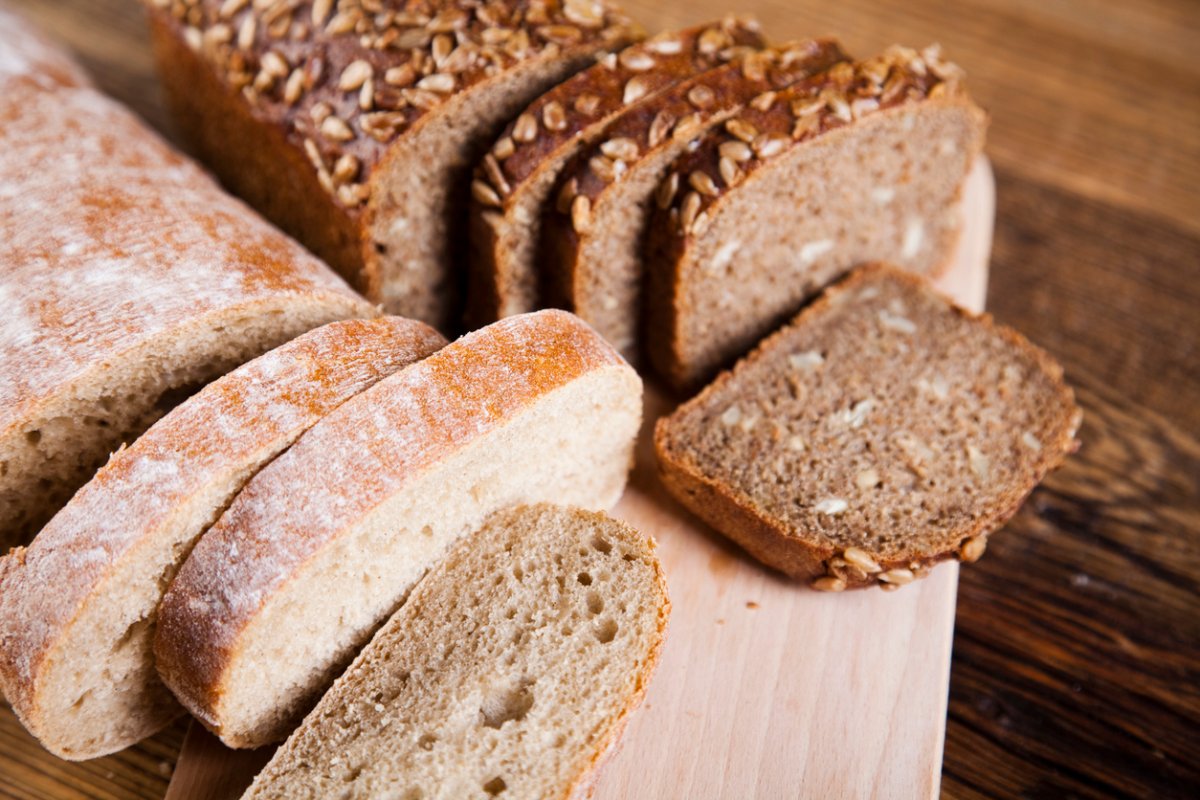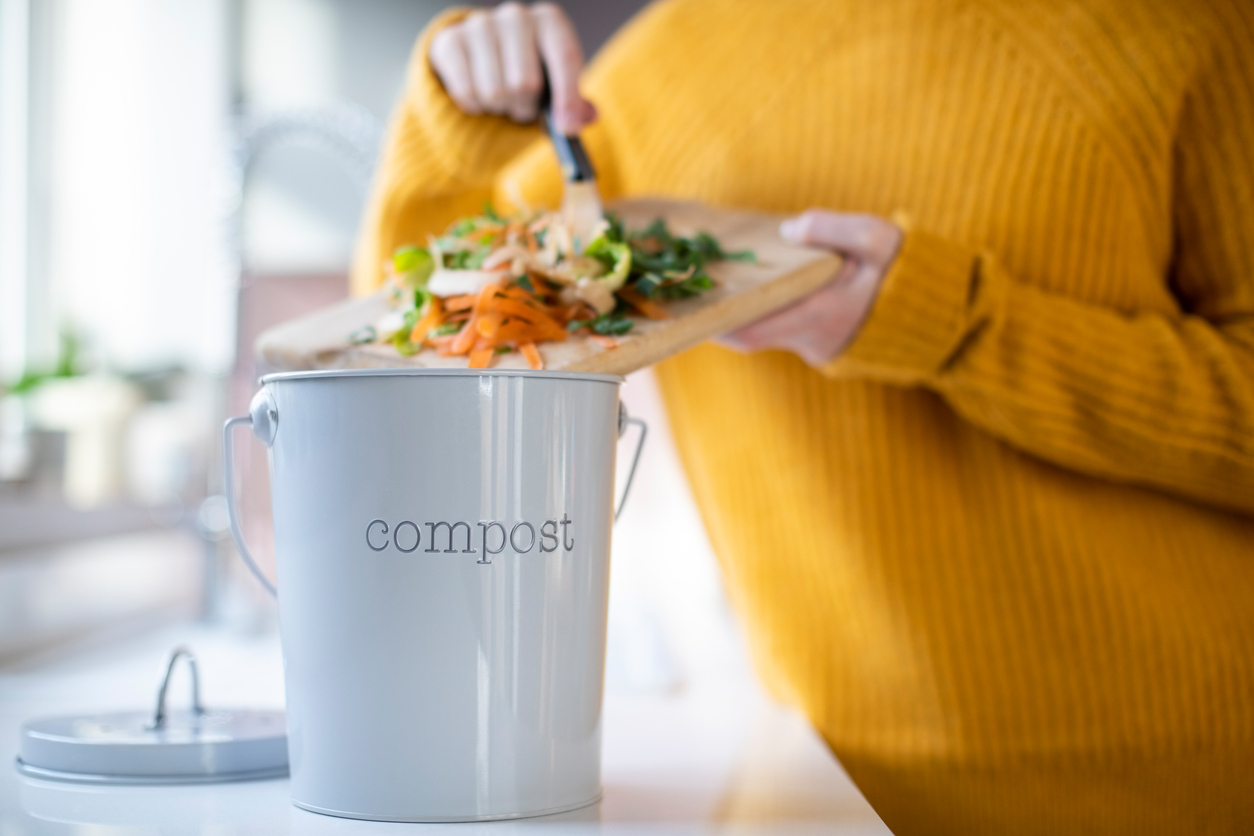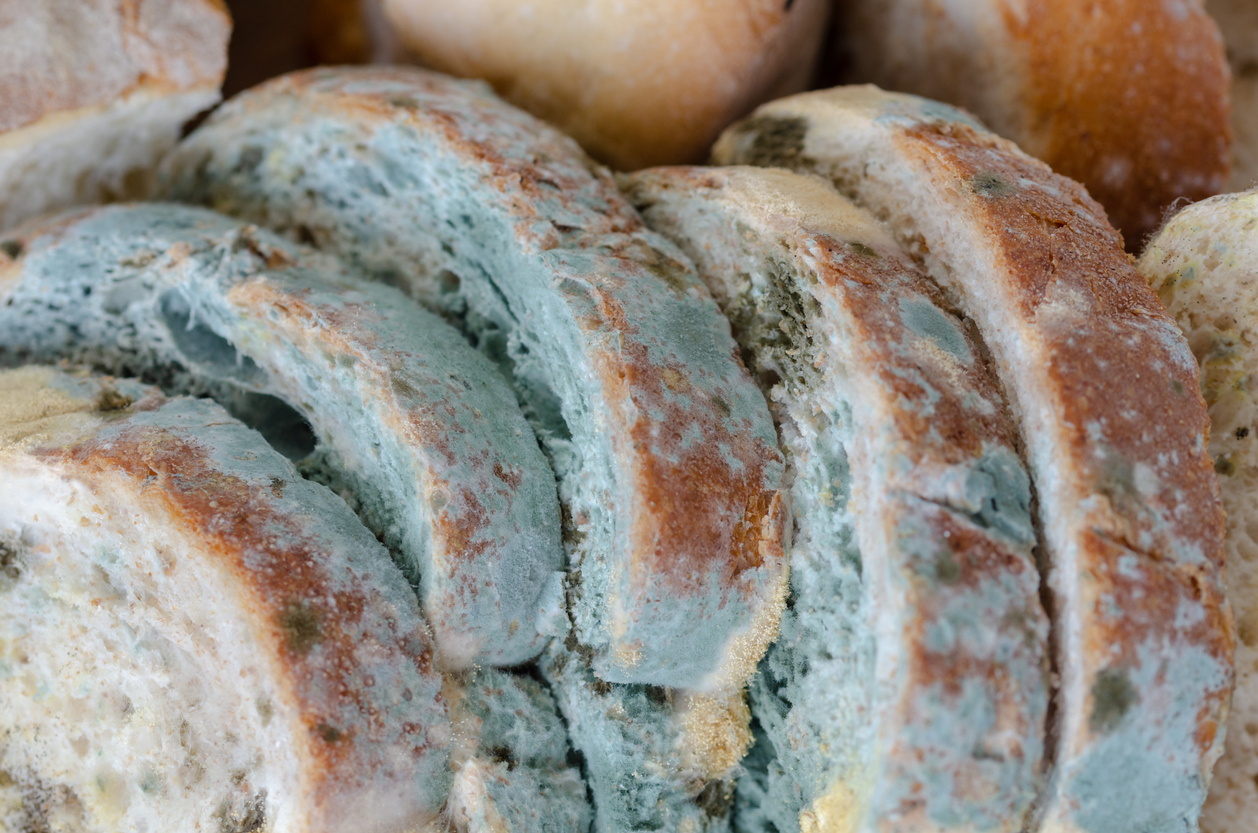

We may earn revenue from the products available on this page and participate in affiliate programs. Learn More ›
Q: Can you compost bread? It’s a reasonable question to ask and comes with a complicated answer. Is bread compostable? Yes, when done correctly. Is bread good for compost? It can be, if you follow the right steps.
A: Table scraps and yard waste make up more than 30 percent of landfill material, according to the Environmental Protection Agency. Many people prefer to divert table scraps from the waste stream by composting them. Compost provides valuable nutrients for plants, encouraging strong root growth and an abundance of flowers and fruit.
However, there is some discussion about whether it’s advisable or even safe to compost bread. After all, not everything should be composted. For example, you should never put animal products such as meat and dairy (including fat, grease, and lard) and pet waste into a compost bin or pile. That’s why serious composters check the ingredients labels on bread, and avoid including any bread that has dairy as an ingredient.
That gives rise to the question: Can bread be composted? The answer is yes—with some caveats. There are a few general rules when it comes to adding bread to compost.
RELATED: All You Need to Know About Compost Tea
In short, yes, you can compost bread.
Compost consists of decomposed organic matter. It is highly prized as a soil amendment that offers additional nutrients to plants. The organic matter can come from leaves, grass clippings, wood chips, sawdust, shredded newspaper, fireplace ash, hay, straw, plants, cotton and wool rags, coffee grounds, and other table scraps—excluding animal products and byproducts.
Bread is an organic scrap that breaks down quickly and adds nitrogen to the soil. But some composters disdain it out of concern for attracting pests to the compost pile. Others say you can put bread in compost piles, with some conditions. Fresh bread is frowned upon. The bread should be stale, torn into small pieces, placed in the center of the compost pile, and thoroughly covered.
Controlling pests and moisture are keys to successfully composting bread.
The biggest argument against adding bread to compost is the risk of attracting pests, from wildlife to insects. There are ways to diminish that, such as by adding bread to the center of an outdoor compost pile and fully covering it with dirt or other material to reduce or remove the scent and deter rodents and insects from accessing it.
Enclosed compost bins like this highly rated option available at Amazon—a favorite in our researched guide to the best compost tumblers—keep pests at bay, and can create compost out of organic material faster because they regulate temperature, moisture, oxygen, and bacteria. If you’re doing vermicomposting (worm composting), there’s minimal chance of attracting pests because the worms keep the organic material aerated and tumbled.

Whether you keep an outdoor compost pile or use an indoor compost bin such as this highly rated Vitamix FoodCycle available at Amazon—selected as “upgrade pick” in our researched buyer’s guide—aeration, tumbling, and the correct balance of nitrogen-rich greens to carbon-rich browns will reduce odors that attract pests. It’s best to mix three parts brown material (leaves, woody plants) to one part green material (grass clippings, table scraps). While there’s some disagreement whether bread is green or brown, its high nitrogen content usually indicates green.
RELATED: All You Need to Know About Indoor Composting
How to Compost Bread:
To achieve the best results and deter pests from accessing your compost pile, follow these specific steps:
- Break the bread into small pieces. This will help it decompose faster and it helps prevent pests from being attracted to the compost pile.
- Place the bread in the center of the compost pile. This is the hottest part of the pile, where the fastest decomposition is occurring. It’s also another deterrent to pests.
- Cover it thoroughly. Using leaves or sawdust will balance the nitrogen-carbon mixture for better decomposition.
- Speed up the process by layering. Adding garden soil, finished compost, or aged manure can speed up the decomposition of bread and other kitchen scraps.
- Aerate the pile. Turn an open, outdoor pile. Tumble a compost bin. Allowing air to get to it will assist the decomposition process. Turning the pile regularly also reduces odor.
Can moldy bread be composted?

Stale, out-of-date bread is a good candidate for composting. Even better is moldy bread. The mold indicates that the process of decomposition has already begun, so adding it to the compost pile can speed up the composting process. Mold cells are one of the different types of microorganisms that assist in the decomposition process.
Nitrogen-rich organic materials like bread decompose faster than carbon-rich material, so adding moldy bread can speed up the composting process. Green mold usually grows on kitchen scraps. As long as it is mixed in properly and the compost pile has sufficient air and moisture, along with a balance of green and brown organic material, it will be fine.
RELATED: 8 Top Tips for How to Use Compost
What about other baked goods and pasta?
You can compost most starchy foods, including other baked goods and pasta. A rule of thumb used by many composters says that if you can eat it, you can compost it. Like bread, pasta will compost better when broken into smaller pieces, and when added in limited quantities.
Many nitrogen-rich materials are wet, and adding too many at once can increase the moisture content of the compost pile too much. Fortunately, pasta is considered a dry organic for composting purposes.
Leftover dry or plain cooked pasta is the best type of pasta to add to compost. Avoid composting pastas that contain meat and dairy in the sauce. Similarly, pesto contains oil, which breaks down very slowly, displaces water, and reduces airflow in the compost pile.
Sugary baked goods, such as cakes, cookies, muffins, and pie, are more likely to contain dairy and attract pests, so many composters advise against adding them.
